THIS IS WHAT SUSTAINABLE MEANS TO US
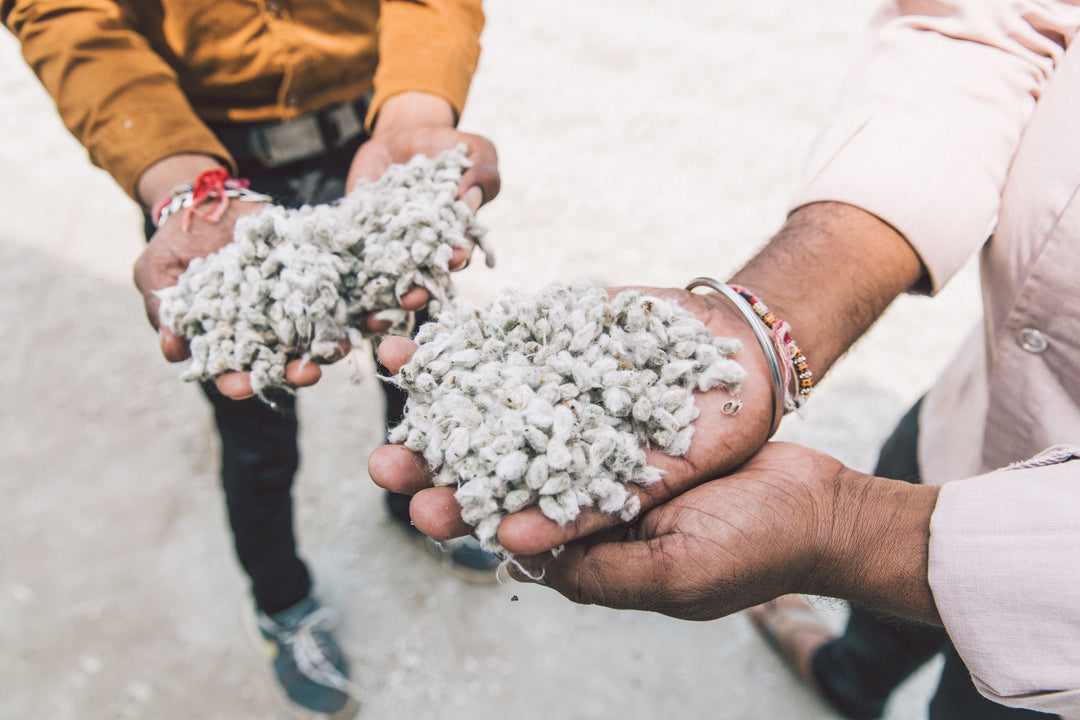
Natural and Organic
Natural materials grown organically lead to healthier outcomes for the environment and the people that work in it.
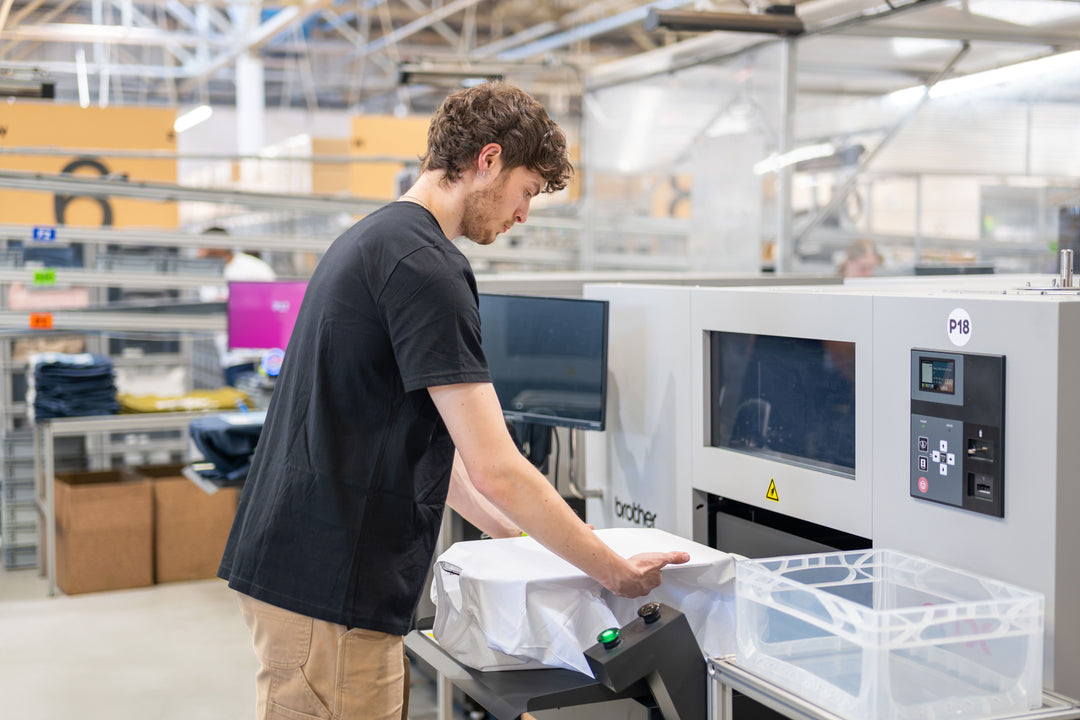
What you need when you need it
Printing products in the seconds after they are ordered designs out overproduction and waste.
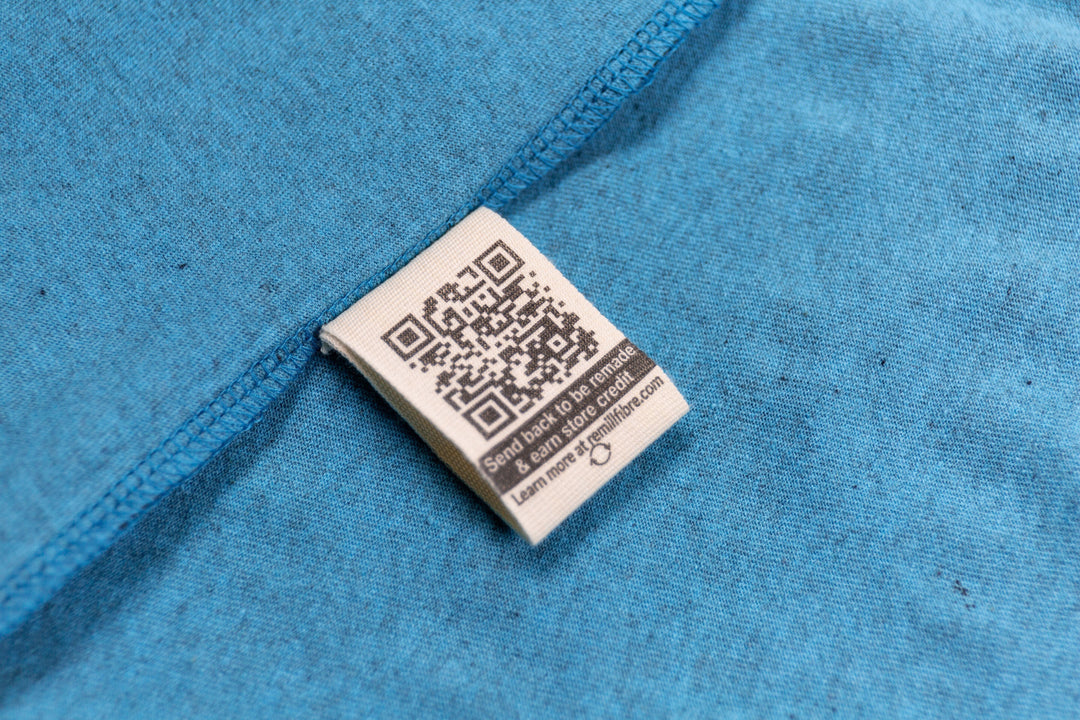
Circular and renewable
Every product is designed from the start to come back and be remade when it is worn out.
PUTTING THE ENVIRONMENT FIRST
When we read that 10% of worldwide CO2 comes from clothing, that 60% of clothes are made from or with plastic and that a dump truck per second of textiles waste goes to landfill or incineration every second, we knew we wanted to be part of the solution, not part of the problem. That's why our products are made from organic materials, using renewable energy and designed to come back to be remanufactured when they're worn out.
It's the advanced technology in our supply chain that makes this possible. Out in business-as-usual land, clothes are mass produced speculatively, producing massive amounts of waste: 40% of clothing is never worn. By printing in real time we only make what people need when they need it. That saves money that we spend on making organics and renewables affordable. Our robotics do the same thing, making the pack process 30% more efficient so we can afford the 10X increased cost of using packaging made from plants, not plastic.
The first working circular supply chain is a systemic approach to a total redesign of the way the clothing industry works. Changing that changes the outcome. It's why we are here.
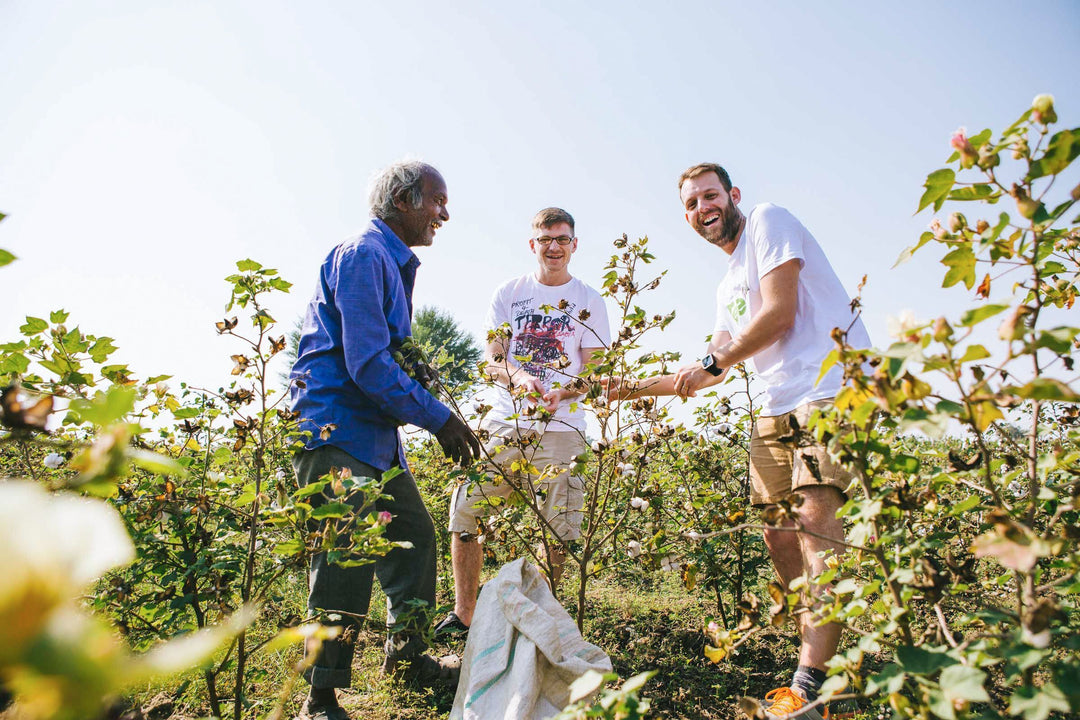
Natural and Organic
Teemill products are printed to order on the Isle of Wight and made from organic cotton using renewable energy. Each item is designed to be sent back when worn out, and we make new products from the material that's recovered. These recycled products are then available to be added to your store.
Organic cotton is better for the producers and the ecosystem in which it is produced. Instead of more toxic pesticides and fertilisers, co-planting and insect traps are used along with the special ingredient - cow poo. It encourages biodiversity and leads to the extra soft feel of our products.
Less inputs also mean less water, but even organic cotton is still a thirsty crop. So where you grow it matters. The fields that grow the organic cotton for our products are in the North of India, where the monsoons fill reservoirs that supply almost all the water needed.
MODERN PRODUCTION
Teemill products are certified with OEKO-TEX’s Standard 100, meaning that no hazardous chemicals are used or discharged during the printing of our products. The use of technology has enabled this transformation. By printing the products in real-time to order, we only make what people need and when they need it.
Similarly, software runs the reverse logistics that enable the products sold on Teemill stores to be recovered and remade when worn out. From this integrated and digitised supply chain, efficiencies are created and the cost savings can be reinvested in the facilities, working conditions and team. Consequently in the factories on the Isle of Wight, in India and in Europe, the environment is clean, light, modern and positive as would be expected from any 21st century manufacturer.
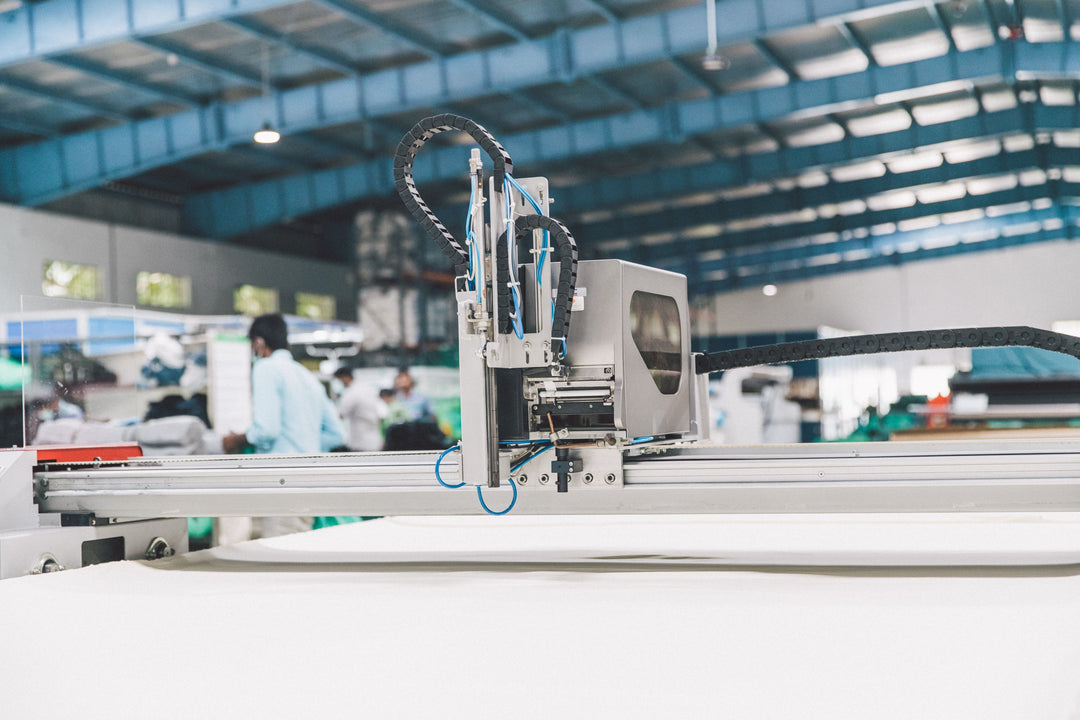
WATER CLEAN ENOUGH TO DRINK
Wastewater from dyehouse effluent is a major source of pollution in the clothing industry. Where Teemill products are dyed, the water is recovered, cleaned and recirculated. After settling and skimming, the water is filtered using reverse osmosis and distillation. This is basically sucking up water through really fine sand over and over, then boiling it.
Salt is added back in so that the dye adheres and all the cruddy mulchy stuff left over is dried out and used for road markings. About 95% of the water is recirculated and recovered.
At the end, the water coming out of the filters and going back round to be reused again is crystal clear, literally clean enough to drink. Once it has been cleaned, it is then used at the input for the next batch. It is a closed loop system.
ONLY WHAT YOU NEED, WHEN YOU NEED IT
We develop technology at our factories to improve all aspects of t-shirt printing. This includes working on lower impact inks, software, machinery and automation technologies. It enables us to make your products in real time. At the factory, products are only made after they have been ordered - there is no waste.
The efficiency and productivity gains from tech balances the cost of more sustainable materials. Tech is how all this is made affordable.
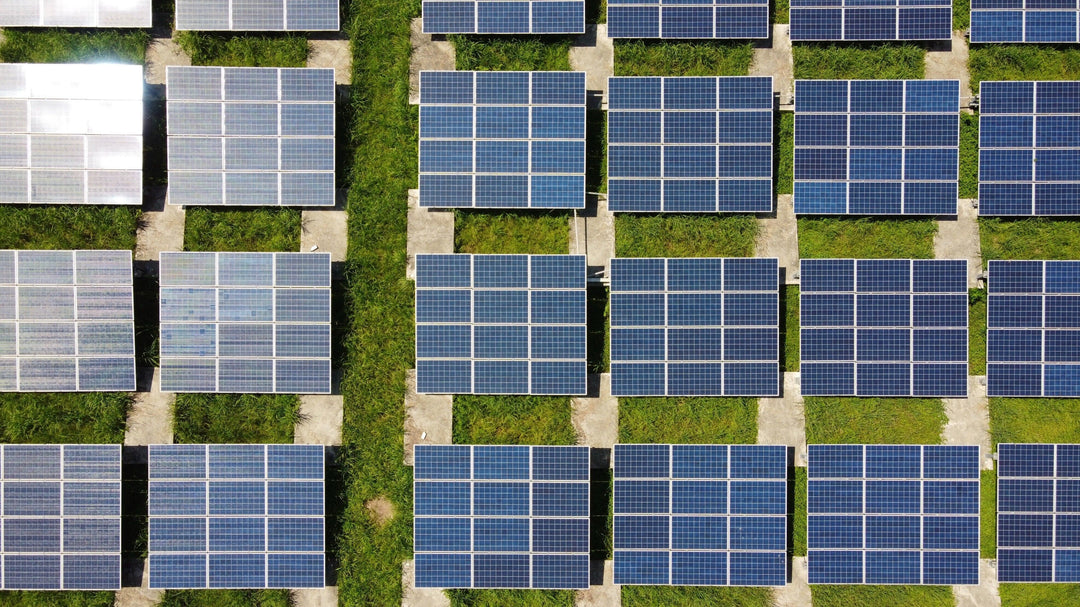
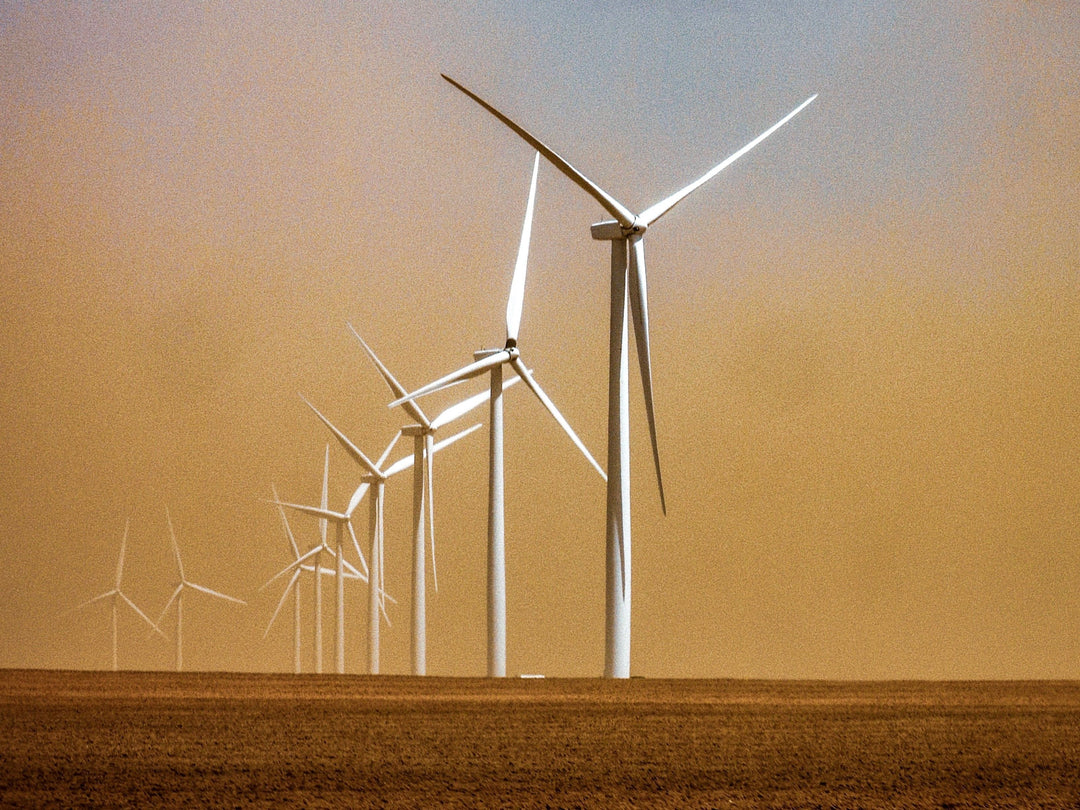
Powered by Renewables
Clean, renewable energy is a vital tool to reduce the worst effects of climate change. Throughout our supply chain, renewable energy is used. We use a solar farm and power manufacturing operations with renewables. In India, the factory owns two wind farms and a 150kw PV array. Renewable energy is affordable, reliable and something we are committed to using.
Within the factory machine-to-machine communications technology allows us to dynamically turn equipment on and off only when it is needed, balancing our manufacturing demand with on site generation.
Plastic-free Packaging
By 2050 there will be more plastic in the ocean than fish. This is bad. Instead of plastic packaging, we use a rip and splash-proof mailer bag made out of paper. Big orders come in cardboard boxes, with paper-based tape.
- Plants, not plastic.
- Reuse the packaging or colour it in.
- Recycled material stickers.
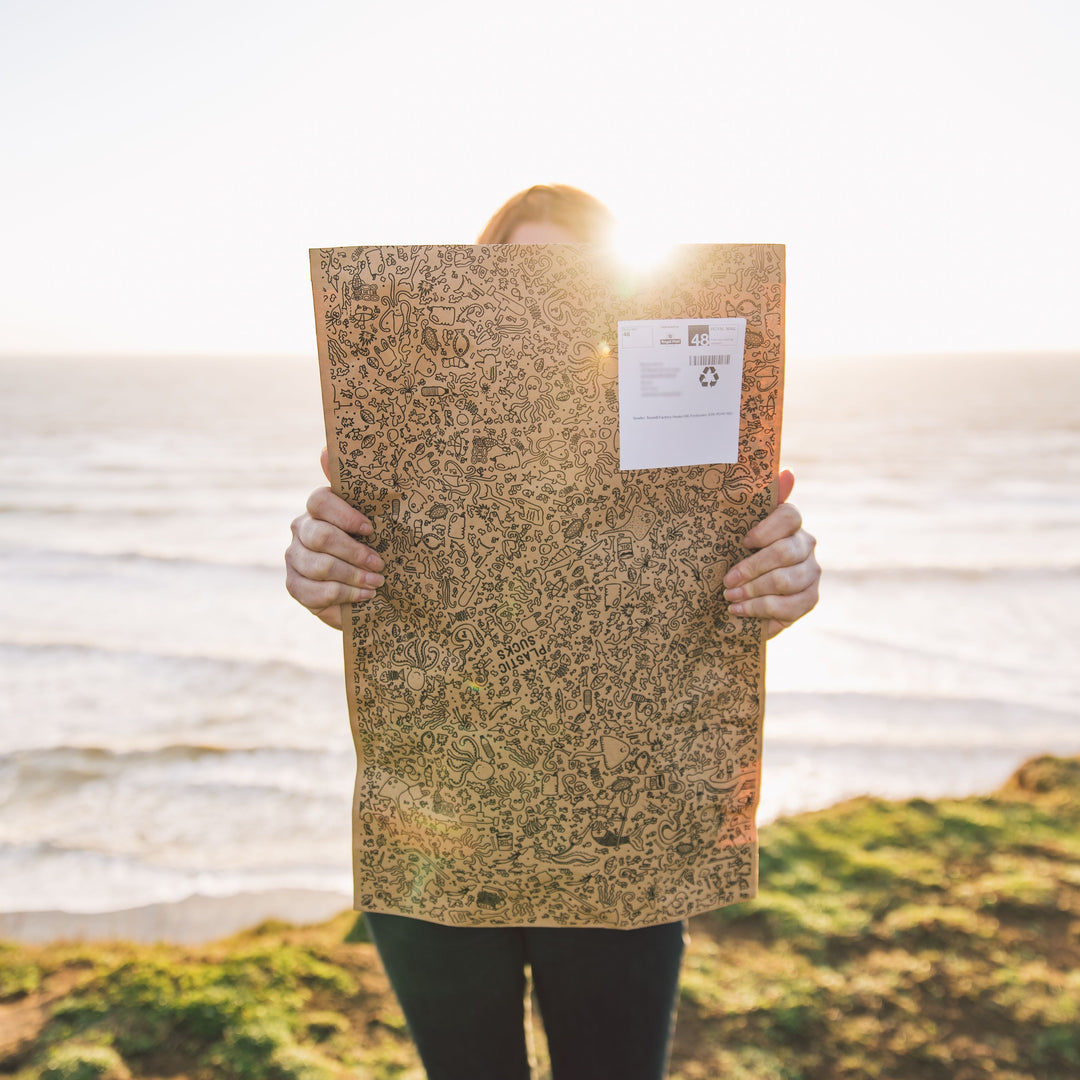
Made to Last
These products are made to last and we encourage everyone to care for them properly and use them for as long as possible. T-shirts are printed to order in the UK using water based inks one at a time and in real time, so there’s no waste from over-stocked designs and sizes. What is made is only what people need, when they need it. When they are no longer wearable, each is designed to be sent back to us and the material reprocessed, respun and made into new products.



